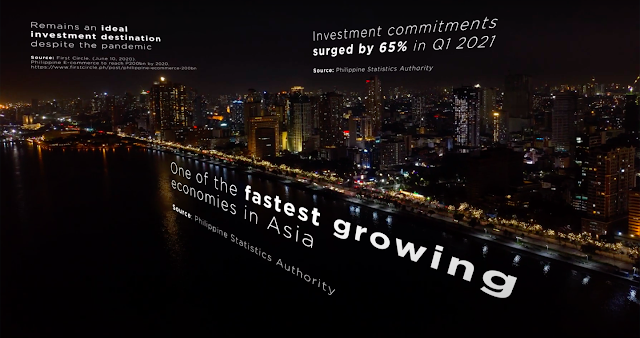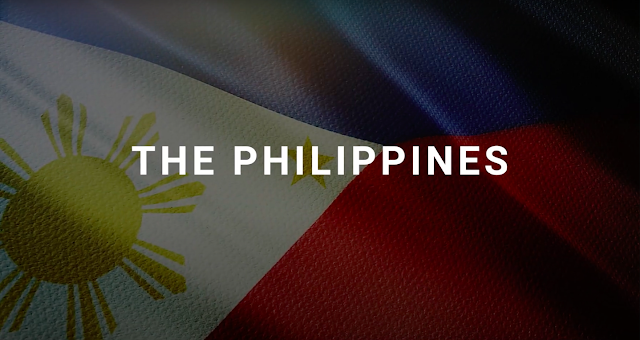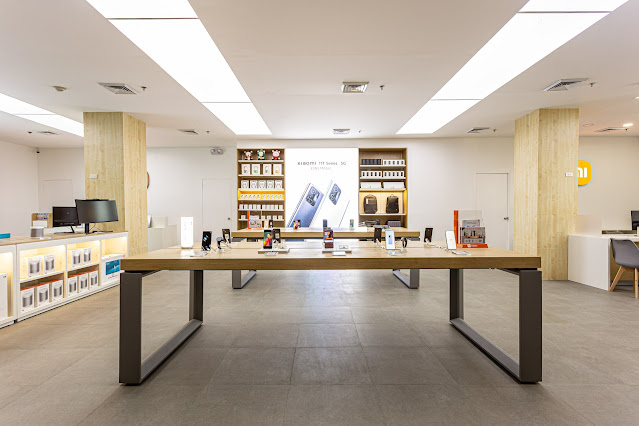With a fast-growing digital economy and strong digital roadmap, the Philippines proves to be an ideal investment destination for global hyperscalers or the massive international companies that dominate the cloud service sector.
December 27, 2021
Philippine digital revolution opens opportunities for more hyperscalers
With a fast-growing digital economy and strong digital roadmap, the Philippines proves to be an ideal investment destination for global hyperscalers or the massive international companies that dominate the cloud service sector.
December 26, 2021
LG's indoor gardening appliance presents modern concept for greener, healthier homelife
PayMaya pays it forward to mental health frontliners
PayMaya pays it forward to the National Center for Mental Health by giving out 100 Christmas food baskets to NCMH Crisis Hotline responders and ER and Psychiatric Acute Unit staff.
5 Tips for Businesses to Achieve a Plastic Pollution-Free Christmas
Plastic pollution in the Philippines has already reached an alarming rate and continues to be one of the top environmental challenges for the country and the rest of the globe.
According to a report released by WWF-Philippines in 2020, Filipinos consume a yearly average of 20kg of plastics, from which 15.43kg/cap/year becomes waste. Insufficient recycling capacities for high value recyclables (i.e. PET, PP, HDPE) and the high volume of low value plastics (including sachets) are some factors that affect the country’s low plastic recycling rate, at 9%. The report further estimates that the Philippines leaks about 35% of plastic wastes into the environment.
With the economy slowly opening, WWF-Philippines encourages businesses to integrate plastic pollution-free practices to fight plastic pollution. Here are some useful tips for business owners on how they can participate in creating a plastic pollution-free Christmas this 2021.
Take Accountability
Businesses should acknowledge that they are accountable to the plastic pollution problem. We want businesses to assume full responsibility for products they bring to the market. It is with accepting this that taking actions comes in from reduction goal setting, adopting circular solutions, and contributing in stopping plastic waste leakage.
Provide plastic-free options to consumers
We encourage businesses to offer plastic-free options to consumers through “bring your own” scheme and having the option to refuse unnecessary plastic items. Some major fast food restaurants are already doing this and we encourage other businesses to do so. We wish that businesses be at the forefront to consumers about reducing plastic consumption.
Segregate and divert recyclable wastes
For necessary plastics, we wish businesses to segregate and divert through partnering with recyclers and social enterprises. It can sometimes get complicated with the plastic types but it is important to start using the numbers in the plastic products to help facilitate its recycling. You can partner with a local junk shop to help identify items that they can buy. There are also a number of social enterprises like Trash Panda, Plastics by Manila Automat, Plastic Flamingo, and Green Antz, among others that offer collection partnerships. You can also work with your city/ municipality to work on models to improve the current waste management system.
Share best practices and collaborate with other businesses
Collaboration is important in working towards sustainability. It is with conversing with other businesses that are doing their fair share in reducing plastic pollution that we learn which to adopt and what to improve on in our operations. We wish businesses to work together within the industry and with other industries so we all learn how to improve our current system.
Support the EPR Scheme in the Philippines
WWF-Philippines is pushing for Extended Producer Responsibility (EPR), an environmental policy approach introduced in the 1990s for accelerating the transition to sustainable waste management and a circular economy. We wish businesses to take responsibility and push for an Extended Producer Responsibility (EPR) scheme in the country.
EPR relies on two factors - improvement of product design and recyclability and improvement of waste management systems - and businesses here in the Philippines have stepped up to the challenge, taking sustainability seriously, by working on both upstream and downstream measures to address the plastic crisis.
More and more businesses worldwide have gotten on board with EPR, and several businesses in the Philippines have also adopted the policy by working on both upstream and downstream measures to address the plastic crisis. With enough support, EPR can be a solid foundation for other businesses and even the government to adopt. It is currently gaining traction among legislators in Congress with House Bill 9147 or The Single-Use Plastic Products Regulation Act and Senate Bill 2425 or the Extended Producer Responsibility Act of 2021 which both seek to enact mandatory EPR.
As we enter the holiday season, we wish for
businesses to take part in our journey towards a vision of no plastics in
nature by 2030.
About WWF
WWF is one of the world’s largest and most respected independent conservation organizations, with over 5 million supporters and a global network active in nearly 100 countries. WWF’s mission is to stop the degradation of the Earth’s natural environment and to build a future in which humans live in harmony with nature, by conserving the world’s biological diversity, ensuring that the use of renewable natural resources is sustainable, and promoting the reduction of pollution and wasteful consumption.
WWF-Philippines has been working as a national organization of the WWF network since 1997 and implements various conservation projects to help protect some of the most biologically-significant ecosystems in Asia. WWF-Philippines works to improve Filipino lives by crafting solutions to climate change, providing sustainable livelihood programs, and conserving the country’s richest marine and land habitats.
To learn more
about WWF-Philippines and the Extended Producer Responsibility (EPR), please
visit www.wwf.org.ph.
Xiaomi opens its first Exclusive Service Center in the Philippines
MANILA, Philippines – Global technology leader Xiaomi recently inaugurated its first exclusive service center in the Philippines as part of its commitment to ramp up its after-sales program in the country.












